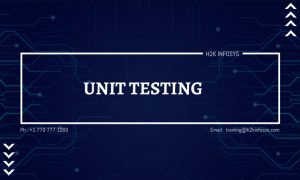Introduction
Technology has a colossal impact on our lives now, and we are living in a golden period. This is particularly true now that Artificial Intelligence is a key component of the sector. More contemporary algorithms have been created to mimic human intelligence and have been incorporated into machines. AI has continued to have an impact on a greater range of industries, particularly in QA testing.
Software quality assurance (QA) is critical to ensuring that applications function correctly, securely, and efficiently. While AI has undoubtedly entered the QA space, automating certain repetitive and labor-intensive tasks, the role of a QA tester is far from obsolete. In this article, we will dive deep into the relationship between AI and QA testing, examine real-world use cases, and discuss how QA testers can continue to thrive in an AI-augmented future.
There are numerous AI-based methods available to address and overcome various difficulties in software testing, but the real question is if AI will replace QA testing.
There have been a lot of talks recently about whether AI will take the work of testers. It is untrue. In the long run, AI won’t take the role of testers. It will alter the testing procedures used by QA testers. Simply said, testers will use smart assistance, which is AI-powered, to conduct testing.
Artificial intelligence and QA testing share some similarities. Traditional testing involves creating test cases, gathering test data, testing against the data sets, and then doing regression testing. Similarly, activities in AI are preparing test data, cleaning the test data, training the test data set and building AI models by running the regressions to get more accuracy.
Will AI Replace Humans in QA Testing?
To answer this question, it’s critical to assess the current state of AI. The current systems that we are aware of and employ have “weak AI”, suggesting they are exceptionally skilled at completing just a single duty at one time. However, unlike humans, they cannot multitask and respond to multiple environmental cues simultaneously or in tandem.
Similar tasks in AI include gathering test data, cleaning it, training it, and creating AI models by employing regression analysis to increase accuracy. Contrary to common opinion, eminent software experts argue that artificial intelligence can only supplement human labour and not completely replace it in software testing. Humans, as opposed to AI, can look beyond the obvious and look into hidden software hazards. However, to arrive at a chosen result, a number of aspects need to be thoroughly investigated.
Limitations of Human QA testers Compared to AI
Although they are recognized as a trustworthy resource for software testing, people have several limitations. Some of the shortcomings of human software testers that affect their effectiveness and performance include the following:
- Time-consuming.
The time commitment required for human software testing is one of its biggest disadvantages. Artificial intelligence can shorten the time needed to validate the functionality of a piece of software in half.
- Limited alternatives for testing.
The testing possibilities are expanded by artificial intelligence, but the spectrum of human testing scenarios is constrained.
- Not using automation.
Software testers are required for manual testing, although artificial intelligence testing can be done reliably with little to no human involvement.
- Poor performance.
Without adopting artificial intelligence automated software testing methods, a major company will have low productivity.
- Reduced Accuracy.
As a result of potential defects that the software tester may not catch, manual testing is not always completely correct. Software testers often miss certain bugs, and some sections only receive validation while others do not. AI can improve both coverage and accuracy.
- Scalability Issues.
Manual testing is a sequential procedure that follows a linear path. This means that only one test can be produced and run at a time; attempting to construct many tests from different features simultaneously would add to the complexity.
AI as a Full-Time Human Replacement
- Regular Input Requirement.
QA testers for artificial intelligence often refer to this as “GIGO” (Garbage in, Garbage Out) because the majority of people think that AI will solve all of their testing issues. They believe artificial intelligence will be able to fix all the issues that manual testing has been unable to.
A problem that cannot be handled manually, simply put, cannot be solved by an AI program. Only problems that have been manually solved and given instructions to be digitally solved can be handled by AI systems. As a result, an AI tool can only execute suggestions and cannot perform further tasks.
- Costly expenses.
Individual testers and small firms may find AI tools prohibitively expensive to purchase and maintain over time to fulfil the most recent standards.
- Limited Independent Capabilities.
Because they are not programmed to do so, automated software testers are unable to think outside the box. They have restricted skills and are restricted to using the algorithms or programs stored in their internal circuit.
The Answer: Human-AI Cooperation
Human interaction in AI-based systems is important to guarantee that they work as designed. AI is only capable of performing the tasks for which it was programmed; it cannot reason or react in the same way as humans, especially when numerous factors and professions are at play.
As a result, people will always be required and useful even if we use AI-based technologies. AI must be trained by humans, evaluated by humans, and verified to fulfil consumer expectations for privacy, confidentiality, usability, and other factors necessary to remain competitive in today’s market.
In Conclusion, QA testing has benefited greatly from artificial intelligence, which has helped the field achieve outstanding accomplishments. Still, the inevitable need for humanitarian aid is accorded more weight. Companies are arguing whether artificial intelligence should be employed exclusively within their quality assurance teams as it enters product testing and other aspects of Quality assurance trainings. On the other hand, it is evident that human involvement is necessary for quality assurance to work.
Key Takeaways: The Future of QA Testing with AI Integration
1. AI Enhances QA Testing but Can’t Replace Human Skills
AI has significantly transformed the landscape of QA testing by automating repetitive tasks such as regression testing, data entry, and bug reporting. However, despite its capabilities, AI lacks the human elements of intuition, creativity, and critical thinking. These are essential qualities for tasks that require a deep understanding of user behavior, innovative solutions, and strategic decision-making. While AI tools excel at executing predefined tasks, they cannot replicate the adaptability and judgment that human testers bring to the table.
2. Human QA Testers Remain Essential for Key Tasks
Despite the rise of AI-driven tools, QA testers continue to be integral to the testing process, especially in areas such as exploratory testing, user experience validation, and cross-team collaboration. Exploratory testing, where testers actively try to uncover unexpected issues, requires a level of creativity and insight that AI cannot provide. Similarly, validating the user experience (UX) involves empathy and understanding that goes beyond automation, ensuring that products meet human-centered design standards.
3. AI-Powered Tools Revolutionize Testing but Require Human Oversight
AI-powered tools are transforming testing by enhancing efficiency, speed, and accuracy. Automated testing tools can execute tests faster, analyze large data sets, and predict potential issues, thereby improving the overall quality assurance process. However, these tools still need human supervision to ensure they are functioning correctly, interpreting results accurately, and adapting to new situations. QA testers are still needed to provide guidance and ensure the proper application of AI-driven tools, making their role in the testing ecosystem irreplaceable.
4. The Importance of Upskilling for QA Testers
As AI and automation continue to shape the future of QA testing, it is crucial for testers to upskill to remain competitive in the field. Learning automation testing, coding, and familiarizing oneself with AI-powered testing tools will ensure job security and career growth. QA testers who adapt to these technological advancements will be equipped to handle more complex tasks and move into more strategic roles within the software development lifecycle.
5. QA Tester Programs and Online Courses to Prepare for the Future
QA tester programs and QA tester courses online focusing on AI and automation provide testers with a solid foundation for staying ahead in the evolving industry. These courses equip professionals with the knowledge and practical skills to work with cutting-edge AI-driven tools and automation frameworks. By completing such courses, testers will not only enhance their technical skills but also increase their value in the job market, positioning themselves as essential players in the future of QA testing.
Conclusion
While AI continues to evolve and disrupt industries, the role of the QA tester remains irreplaceable. AI is a powerful tool that enhances the QA process, but it cannot replace the human elements of creativity, intuition, and collaboration that are vital for ensuring software quality.
For QA testers to stay relevant, ongoing education is essential. By enrolling in QA tester courses online or QA tester training and placement programs, testers can acquire the skills necessary to work alongside AI rather than be replaced by it.
At H2K Infosys, our QA tester program prepares you for the challenges of modern software testing, equipping you with the knowledge and practical experience to thrive in an AI-augmented world. With a focus on real-world applications, automation, and AI tools, we ensure that you stay ahead of the curve.
Take control of your future enroll in our comprehensive QA tester program today and future-proof your career in software testing.
Looking to stay competitive in the ever-evolving world of software testing?
Don’t wait! Enroll in H2K Infosys’ QA tester courses online and join our QA tester training and placement programs to gain the hands-on experience and industry-relevant skills you need to excel. Learn how AI is transforming QA and how you can leverage it to become a more effective QA tester.




























